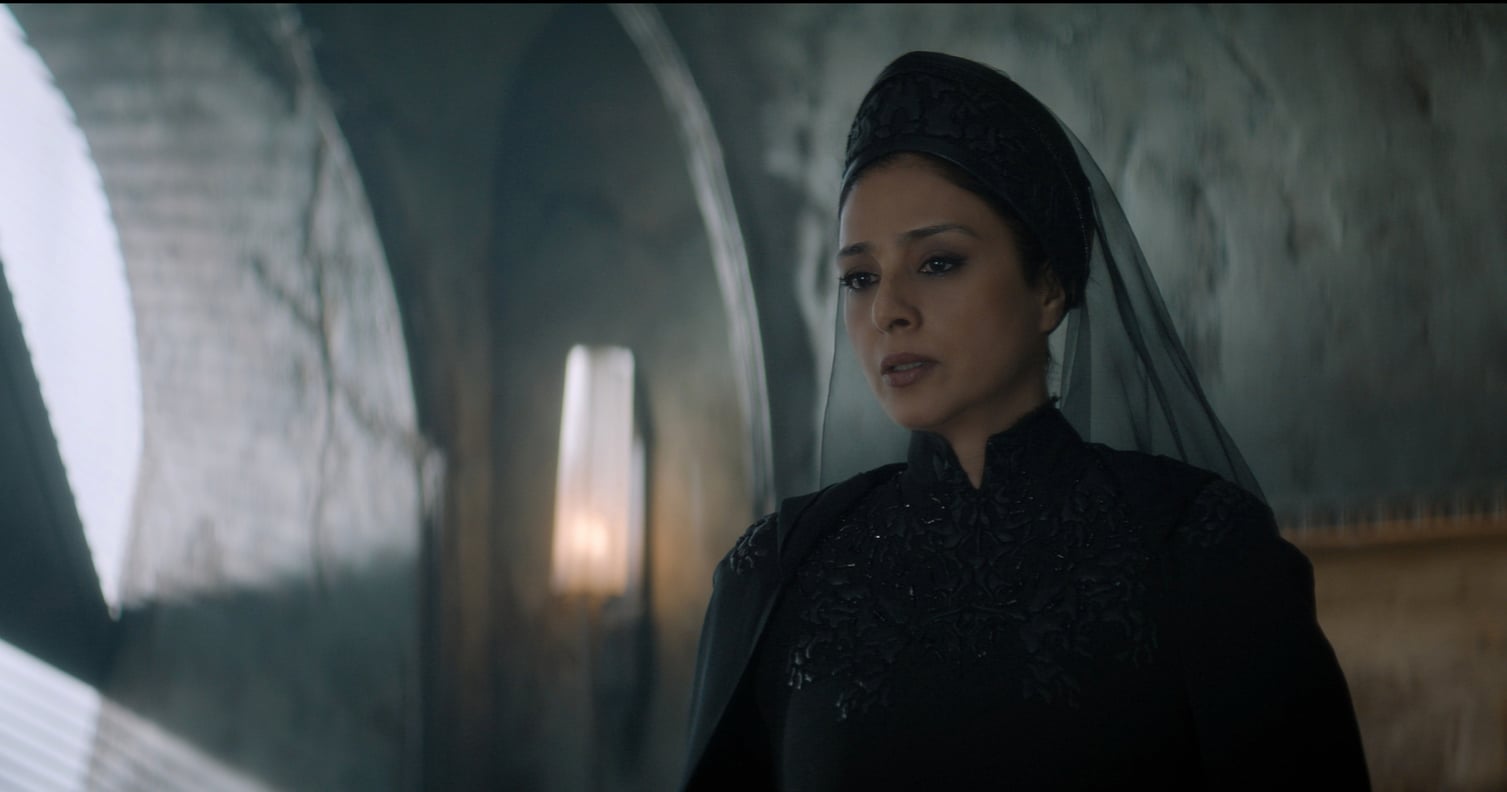Image Source: Attila Szvacsek / HBO
South Asian representation is getting the spotlight in Hollywood and pop culture – and it goes beyond stereotypes. Just think of fun coming-of-age stories like Mindy Kaling’s “Never Have I Ever,” or Avantika Vandanapu’s reprise of Karen in “Mean Girls” (2024), or action-packed thrillers like “Citadel” starring Priyanka Chopra. From Dev Patel’s directorial debut “Monkey Man” featuring Sobhita Dhulipala to “The Real Housewives of New York” including Jessel Taank, movies and TV shows are exploring the multifaceted experience of balancing identities and going beyond typical narratives.
However, it’s not just South Asian American actors and storytelling taking center stage. Talent from the Indian film industry is also getting international recognition and crossing over to Hollywood. As streaming platforms allow viewers to experience entertainment from all over the world, the global talent pool is opening up for unique crossovers. In the past few years, we saw the song “Naatu Naatu” from “RRR” get an Oscar, Indian actress Alia Bhatt star alongside Gal Gadot in “Heart of Stone,” and Ishaan Khatter appear with Nicole Kidman in “The Perfect Couple.” And now, veteran pan-Indian actress Tabu – who has starred in “The Namesake” and “Life of Pi” – is joining the “Dune” universe as Sister Francesca in “Dune: Prophecy.”
Ahead, Tabu discusses her experiences on the “Dune” set, how she navigates her career as a woman of color, and her thoughts on South Asian identity in Hollywood.
PS: What made you decide to be a part of “Dune: Prophecy”? How do you feel being a part of the “Dune” universe?
Tabu: It is a huge universe, and it’s exciting for any actor to play such an important part in such a big franchise. But, it’s not just about being in a big franchise; it’s what you are doing in that franchise. The character that they came to me with is beautiful, and they were very keen to have me be her. It was two episodes [5: “In Blood, Truth” and 6: “The High-Handed Enemy”], but it was so impactful and so important to the story that it just felt right to just go ahead and do it.
PS: What resonated with you while acting as Sister Francesca?
Tabu: Her humanness, the depth of her emotion, and she is full of many feelings. She’s always thinking from her heart. If you’ve seen both episodes, most of her scenes are interactions with either Javicco, her lover [played by Mark Strong], or her son. It’s so heavily laden with true feelings for them. I think that was the best part, and that’s what resonated with me. It came easily to me because there was no pretense about her character.
Nobody else had the courage to take these risks, but I did not see them as risks.
PS: I’ve noticed that you are drawn to roles encompassing strong, dynamic women. Is this a conscious choice you’ve made?
Tabu: I’m sure I’m naturally drawn to it, otherwise you can’t make these choices. It has to be the person you are, to begin with. From the beginning of my career, I wanted to do stuff my way, and I was not interested in doing stuff just because everybody else was doing it or this is the way it’s done and all that. I have no judgment or problem with anything or any genre, but I was just sure that doing my way and expressing myself the way I felt came most naturally to me. Also, I wanted to explore women who are not seen so much, especially not just in Hindi cinema, but globally.
Especially where I belong, the cinema women were more one-dimensional most of the time, but not all the time. Some films were giving that kind of platform to women. But, I rebelled and said yes to these really radical characters, playing a suicide bomber to a militant. I’m talking about 25-30 years back, when nobody else was doing it. Nobody else had the courage to take these risks, but I did not see them as risks. I was sure of these films and I was sure of these characters, and the fact that they were so different from what you saw on screen was what propelled me to make those choices, and I’m glad I did that.
PS: In recent years, the South Asian diaspora has been making a mark on Hollywood. What are your thoughts on seeing an influx of South Asian talent in mainstream American media?
Tabu: My thing is I don’t see it like that. Of course, in the past 20-25 years, the world has become a mix of so many things. There is a huge South Asian population overseas, and we are becoming more mixed in our cultural identities. This was going to happen. It was not possible for cultural or ethnic groups to stay in corners and not interact with each other or not cross each other’s path, and that’s all over the world.
In India, you see it as a coming together of so many states and regional dialects. We, as Hindi film actors, will go and do Telugu films, and Telugu actors will come to do Hindi films. Now “Pushpa” is the biggest hit in the history of Indian cinema, and it’s a Telugu film, it’s a regional film. This whole crossing over was bound to happen. More than identifying or seeing that these people are getting roles, I feel that what excites me is to see people doing interesting stuff, getting interesting parts, and exploring characters and unconventional stories, and when it all comes together, then it’s something to talk about.
PS: What can Hollywood learn from the Indian film industry, and what can the Indian film industry learn from Hollywood?
Tabu: What can Hollywood learn from the Indian film industry . . . to have Indian food on set. I was in Budapest and I tolerated the food for a few days, and after a few weeks, I was going bonkers. . . . There was not much vegetarian food, not many vegetables, no spice. I was really struggling. Finally, I found this one line producer, an Indian line producer in Budapest, who got this local Indian restaurant owner, and he arranged for me to get Indian food: lunch, dinner, and breakfast every day.
Image Source: Attila Szvacsek / HBO
PS: How did it feel to act as a character who is not tied to an Indian/South Asian Identity? How did it feel to just be human and not have a culture attached to it?
Tabu: It felt great. First of all, I have to say that just that whole physicality and the outfit and the costume and the veil of this character is my favorite part of Bene Gesserit – just the mystery and the mark that they leave. The veil that says so much, but still hides so much. On screen, when you see these women and these black costumes and these big waves, it says so much about them as people, and that was the fun part. Playing somebody who’s culture agnostic, I could say, on the script, in the story, it was a different experience. I think that also marks really the thing about “Dune: Prophecy” – that we are not talking about any cultural identity. It’s just hanging somewhere with its own identity.
PS: For those who want to watch Indian works, what are your top recommendations?
Tabu: They should watch “Mughal-E-Azam,” “Mother India,” and “Dewar.”
PS: And, if someone wants to watch more of your work?
Tabu: “Maqbool,” “Haider,” or “Andhadhun.”
Anvita Reddy (she/her) is an assistant editor for PS Shopping. She has a passion for products and reviews home gadgets, cookware, tech, and more. Having dealt with acne as a teenager and into adulthood, her expertise lies in beauty. She tests skin care, makeup, and hair care, plus countless other beauty products.




